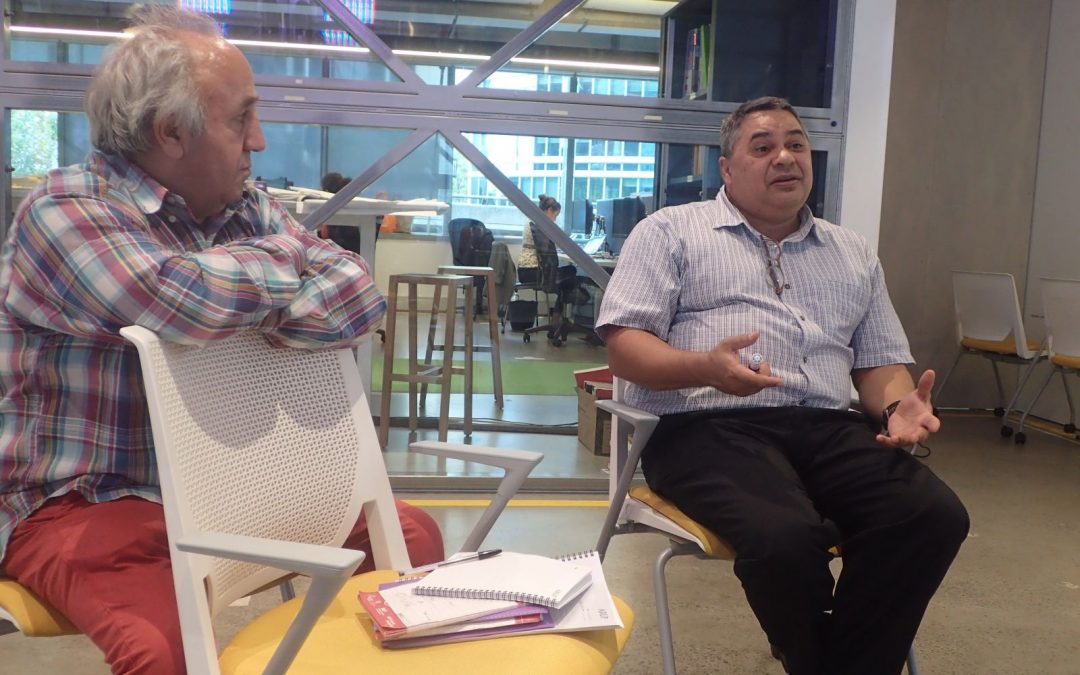It has been 27 years since the famous handshake between the Minister for Indigenous Affairs and his Opposition counterpart, symbolising a great beginning to the statutory Aboriginal reconciliation process. Yet constitutional and legislative deficiencies in the recognition of Aboriginal and Torres Strait Islander peoples still persist. To establish a harmonious cultural and social environment, it is crucial to understand and appreciating other cultures and customs.
The Cross Cultural Training Event hosted on the Saturday 7th April 2018 by Engineers Without Borders and Engineers Australia provided an in-depth interpretation of Indigenous culture, society and history, as well as the interaction between non-Indigenous and Indigenous people. Thirteen professionals and students provided a fantastic small ground environment under the facilitation of highly-regarded national facilitator Tom Kirk.
With a thorough introduction of his family and relatives, Tom Kirk showed us the importance of family in Aboriginal culture. The complexity of kinship was reflected in the classificatory system of kinship where people of the same sex and belong to the same sibling line are viewed as the same, e.g. father’s brother’s children will be identified as siblings rather than cousins. Yet the father’s sister’s children are classified as cousins. The 4 tribal group marriage rules also reflected the closeness and connection between all family members, with this structure creating far reaching social harmony. A cultural factor that has been imprinted and difficult to change therefore becoming a key element we can appreciate, connect and learn from. This extensive kinship structure acted as cohesive forces to bind Aboriginal people together creating the relationship model of governance, far different from the hierarchical governance used in most of our modern day interactions.
In another role-play, Tom gave us a chance to experience how the colonisation disrupted this family model and thus the structure Aboriginal society governance. Participants began to comprehend how challenging it is to maintain a strong culture after colonisation. It was a confronting activity, but effective with all attendees gaining a greater appreciation of why the current Aboriginal culture seemed to be relatively civilised and westernized.The training was indeed amazing, and we left with a great insight into the Indigenous community, kinship and culture. The devastative colonisation history taught us a valuable lesson, especially as engineers, that if we are to positively impact Australian then we must be aware of the diversity and complexity of the cultures that came before us. After all, Aboriginal people lived sustainably in Australia with a community-centred mindset, for tens of thousands of years. Tom also reminded us all that, “While professionally we might be number based in all our heart is a classical and can engage around cake and coffee”.
Engineers without Borders aims to continue to run Cultural Awareness at regular intervals and encourages interested parties to contact us to confirm the next available date. In collaboration with Engineers Australia the next industry focussed session, will be held on the 13/6/18. This session will explore what it means to delivery community focused engineering solutions Further details can be found on the EWB NSW website.
This blog piece was authored by Aaron Smith of the EWB Australia NEW chapter.
Learn more about EWB's work in ProBono and EWB Connect


